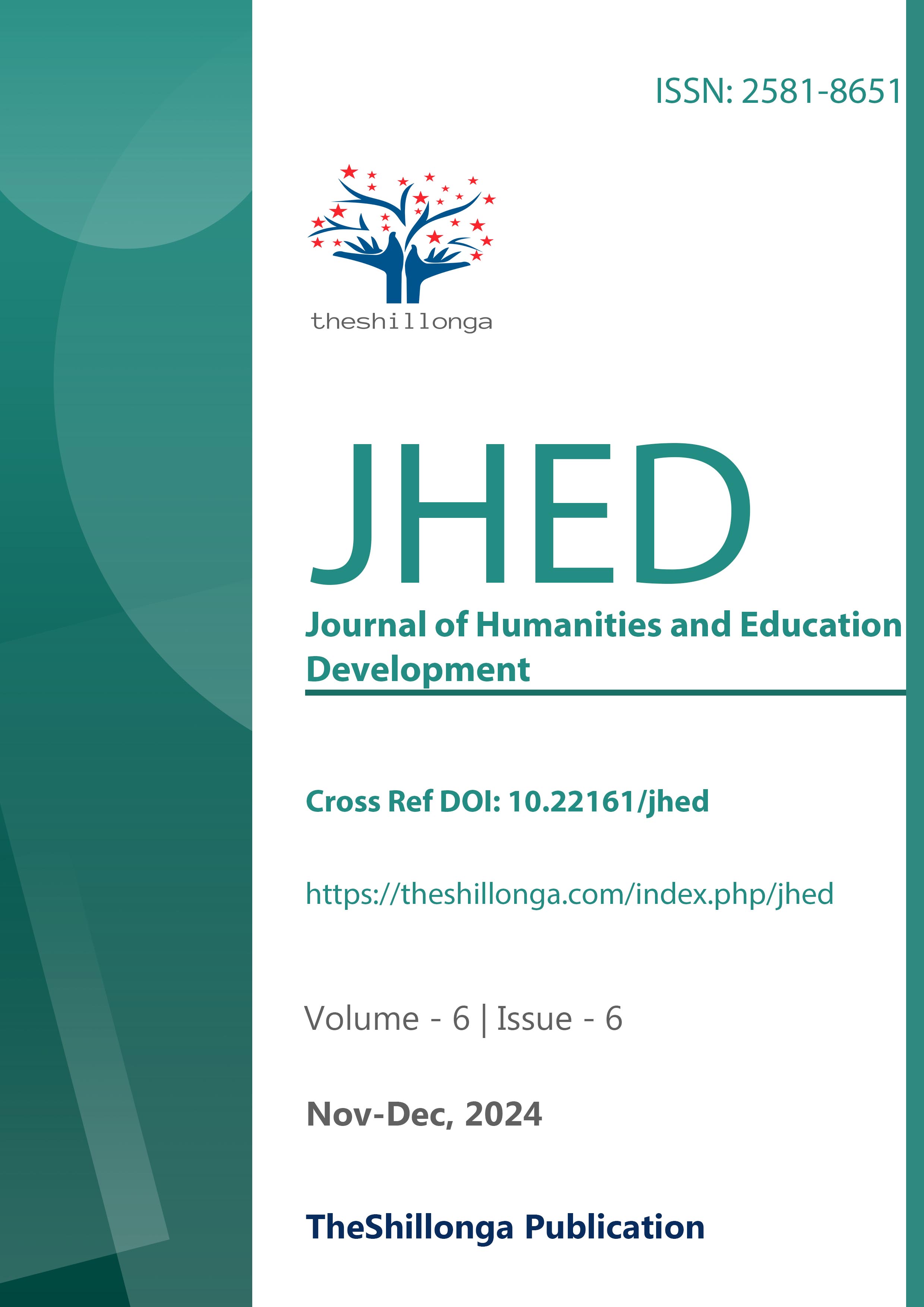The Components and Principles of the Pancasila Profile in North Tapanuli folklore and its significance for learning Indonesian Junior High School
DOI:
https://doi.org/10.22161/jhed.6.6.4Abstract
This study aims to describe the elements and values of the Pancasila student profile contained in folklore in North Tapanuli Regency and describe its relevance to Indonesian language learning in junior high school. This research is in the form of descriptive qualitative. In this descriptive qualitative research, folklore data were taken by purposive sampling. The data of this research are elements and values of Pancasila student profile in five folktales in North Tapanuli Regency. The data sources in this research are folklore documents, heritage places and informants. Data validation uses source triangulation by means of observation, interviews, and documents. Data analysis used interactive model analysis. The results of this study include: Folklore in North Tapanuli Regency contains character education values that are in accordance with the educational objectives of the Merdeka Curriculum including: (1) faith, fear of God, and noble character, (2) global diversity, (3) mutual cooperation, (4) independence, (5) critical reasoning, and (6) creativity. The relevance of the value of the Pancasila learner profile in folklore in North Tapanuli Regency to Indonesian language learning in junior high schools is based on the Merdeka Curriculum in accordance with the Learning Outcomes (CP) in class VII "students are able to write and present responses to the fiction texts they read".
Downloads
References
Bahri Syaiful, Fikri Ach., 2024. Analysis of Pancasila Profile Value in Malin Kundang Folklore.
Danandjaja, J. 1984. Indonesian Folklore: Science of Gossip, Fairy Tales, and Others. Grafiti Press. Fahmiyati, Laeli. 2012. Social Values in Nusantara Folktales and Its Relevance in Indonesian Language Learning for School Students Junior High School Class VII. Thesis, University of Muhammadiyah Purwokerto. https://repository.ump.ac.id/2925/
Hidayat Rachmad, Solihati Nani, Safi'i Imam, 2024. Values of Pancasila Student Profile in Betawi Tempo Doeloe Fairy Tales by Abdul Chaer. https://journal.uhamka.ac.id/index.php/imajeri/article/view/14376
Juliawati, Mira. 2022. Analysis of Intrinsic Elements in a Collection of West Kalimantan Folktales. West Kalimantan: STKIP Melawi. https://www.jurnal stkipmelawi.ac.id/index.php/JBPK/article/download/894/493
Ministry of Education and Culture (2022). Regulation of the Minister of Education and Culture of the Republic of Indonesia Number 22 of 2020 concerning the Strategic Plan of the Ministry of Education and Culture for 2020-2024. Jakarta.
Ministry of Education and Culture (2022). Profil Pelajar Pancasila. https://ditpsd.kemdikbud.go.id/ p/profil- pelajar-pancasila
Nandy. 2021. Types of Folklore: Definition, Characteristics, Functions, and Examples. https://www.gramedia.com/literasi/macam-cerita-rakyat/
Nikita Rosa, 2023. What is Folklore? Definition, Values, Characteristics, and Examples of Folklore. https://www.detik.com/edu/detikpedia/d-6719909/ what-is-folklore-this-understanding-values-characteristics-and-examples
Nurgiyantoro, Burhan. 2005. Theory of Fiction Studies. Yogyakarta: Gadjah Mada University Press.Editorial, 2021. Old Well in Tarutung, Never Close if You Don't Want a Catastrophe. https://www.ninna.id/sumurt-tua-di-tarutung-jangan-pernah-ditutup- if-you-don't- want-a-catastrophe/
Rosalina, WL. 2022. Cultural Values in Folklore Collection. https://digilib. ikippgriptk.ac.id/942/3/BAB%20II.pdf
Simanungkalit, K. E., Tampubolon, T. C., Panggabean, L., Sihite, I., & Simanjuntak, B. (2024). The Importance of Local Wisdom: Improving the Quality of Merdeka Curriculum with Literary Works. https://jbasic.org/ index.php/basicedu/article/view/7173/3296
Sugiyono. (2015). Combination Research Methods (Mix Methods). Bandung: Alfabeta. Taum, Y. Y. 1997. Oral Literature Studies: History, Theories, Methods, and Approaches Accompanied by Example of Application. Lamalera.
Tobatabo Team, 05-08-2013. History and Origin of Tarutung City. https://www. tobatabo.com/455+history-and-origin-of-tarutung-city.htm
TourToba Admin, October 25, 2018. Natumandi Hutabarat Cave and the Legend of the Snake. https://tourtoba.com/goa-natumandi/ University of Muhammadiyah Surakarta. Chapter V Conclusions, Implications, and Suggestions. https://eprints.ums.ac.id/15579/14/BAB_V.pdf Sebelas Maret University. Chapter V Conclusions, Implications, and Suggestions. https://digilib. uns.ac.id/ Website Official District Tapanuli North, 2018.
https://www.taputkab.go.id/ page/v/geographical location
Downloads
Published
Issue
Section
License

This work is licensed under a Creative Commons Attribution-NonCommercial 4.0 International License.


















